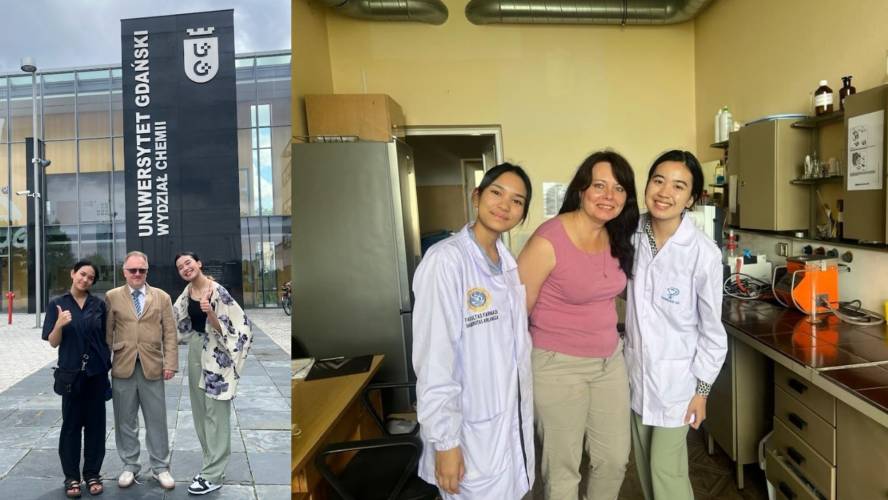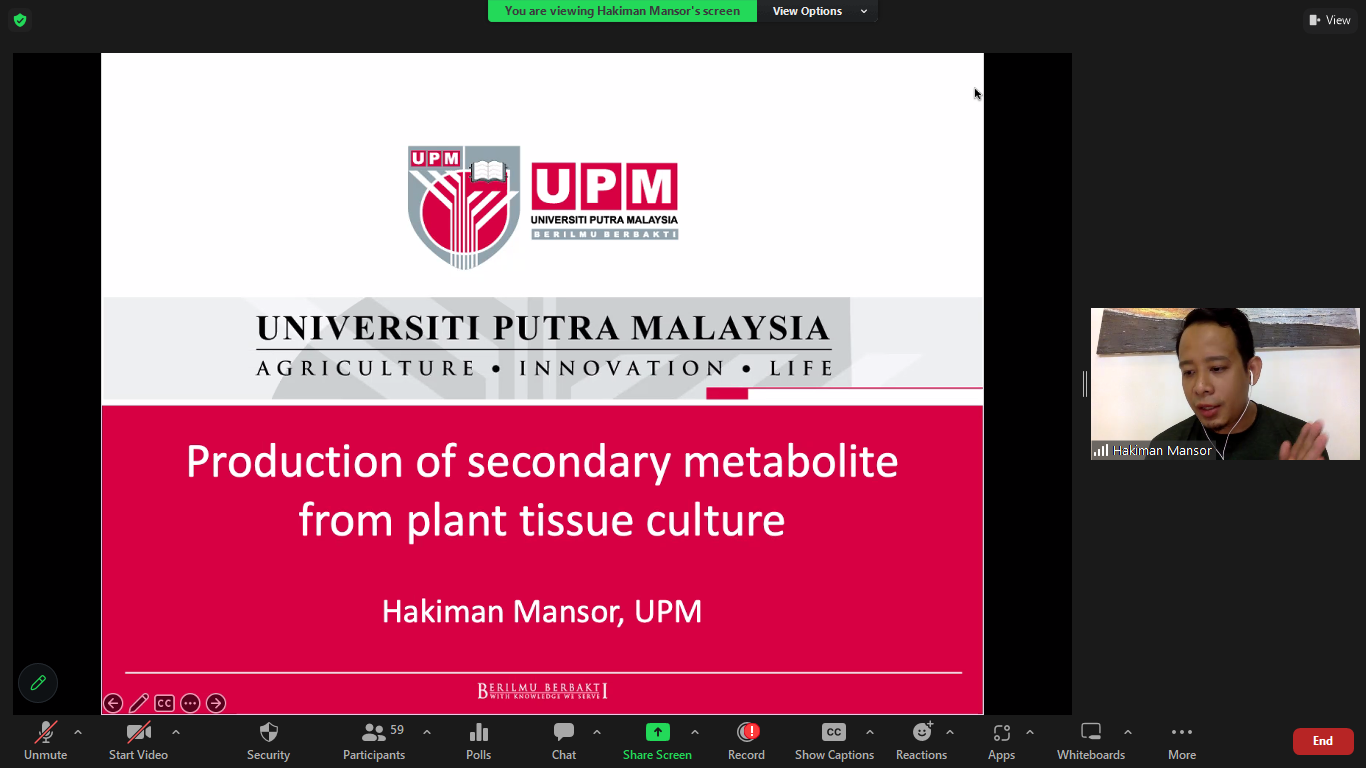Profile
Profile
Profile
Based on the Instruction of the Minister of Higher Education and Science of the Republic of Indonesia in August 1962, the President of Universitas Airlangga with Decree No. Um/251/8/62 dated December 31st, 1962, formed a committee, namely "Committee for Investigating Establishment of the Fakultas Ilmu Pasti dan Ilmu Alam (FIPIA) Universitas Airlangga". The committee prepared a plan to establish FIPIA Universitas Airlangga, which consists of four departments: the Department of Mathematics, the Department of Physics, the Department of Biology, and the Department of Chemistry. In connection with the FIPIA establishment, the idea to add a pharmaceutical education institution and public health education to complement the "University of Airlangga Medical Center" in connection with the existing Faculty of Medicine and Faculty of Dentistry was proposed. The idea was supported by the possibility of utilizing lecture and practicum facilities at the Faculty of Medicine to implement pharmaceutical education. On August 7th, 1963, with the Rector's Decree No. 1782/8/63, a Sub-Committee for Investigating Establishments of the Pharmacy Department of FIPIA was formed in Surabaya.
As a result, based on the Decree of the Minister of Education and Science (PTIP) No. 96/1963 dated August 15th, 1963, the establishment of the Pharmacy Department of FIPIA, Airlangga University was established starting August 17th, 1963. With Rector's Decree No. Um.2034/10/63, in September 1963, the opening of the Pharmacy Department FIPIA was inaugurated, and Mrs. Nanizar Zaman Joenoes, Pharm.D, acted as the first Head of the Pharmacy Department. On October 1st, 1963, lectures began at the Department of Pharmacy FIPIA Airlangga University with 39 students.
In 2000, the study programme shifted the paradigm of its pharmacist education from drug-oriented education to patient-oriented education, embracing the globally known jargon in pharmacy practice called “Pharmaceutical Care”. During its development, the study programme gradually increased the admission capacity. In 2001, the study programme accommodated around 240 students per academic year. The learning process is conducted in 4 parallel classes.
Learning Outcome
A. Attitude
Graduates are able to :
- A1: Realize excellence based on religious morals (excellence with morality), able to work together, and show a responsible attitude to work in their field of expertise independently (Caregiver, Communicator, Manager, Teacher, Researcher)
- A2: Internalize the spirit of independence, struggle, and entrepreneurship (Decision-maker, Leader, Life-long learner )
B. General Skills
Graduates are able to :
- GS1: Apply logical, systematic, and innovative thinking in the context of science and technology development, review its outcome, and apply the humanity values to create solution, idea, design and scientific description as a thesis or a final report (Life-long learner, Teacher, Researcher )
- GS2: Make decisions correctly in the context of problem-solving based on analyzing information and data, document and assure data validity, and prevent plagiarism (Caregiver, Decision-maker, Leader, Researcher )
- GS3: Perform independent, measurable, and quality performance, do a group work, supervise workers under their responsibility, and develop networks with mentors, associates, and colleagues in and out of the institution (Communicator, Manager, Leader)
C. Knowledge
BACHELOR DEGREE
Graduates are able to :
- K1: Explain fundamental and applied basic sciences, basic medical sciences and basic social sciences to support the pharmaceutical sciences (Caregiver, Life-long learner, Teacher)
- K2: Explain basic principles of pharmaceutical science and technology relevant to the drug development, from the invention to the marketing aspect of new pharmaceutical products. (Life-long learner, Teacher )
- K3: Explain the concept of quality control for drug raw material and pharmaceutical preparations (drugs, traditional medicines, and cosmetics), food and beverages in accordance with scientific principles and standards (Teacher, Decision-maker, Communicator)
PROFESSIONAL DEGREE
Graduates are able to :
- K4: Uphold professionalism, moral, ethical, and legal aspects, in the practice of pharmacy (Caregiver, Decision-maker, Teacher).
- K5: Perform pharmaceutical care and collaborate with patients, colleagues, and other health professionals by considering all legal, ethical, professional, sociocultural, and economic aspects to ensure the rational drug therapy and participate in preventive and promotive efforts (Caregiver, Communicator,Manager,Teacher)
D. Spesific Skills
BACHELOR DEGREE
Graduates are able to:
- SS1: Prepare pharmaceutical products (drugs, traditional medicines and cosmetics) covering aspects of the formulation, manufacture and quality assurance based on logical, critical, systematic, and innovative thinking (Manager, Decision-maker)
- SS2: Assess the scientific validity of drug-related information by considering legal, ethical, professional, sociocultural, and economicaspects for the benefits of patients (Decision-maker, Caregiver, Communicator, Manager)
- SS3: Conduct scientific review, research, publish the results, and be able to communicate and responsible for the results on the basis of scientific rules and principles (Leader, Life-long learner, Researcher)
- SS4: Inform and communicate pharmaceuticals, special drug group & medical supplies to patients, colleagues, communities and health professionals based on the principle of rational drug therapy (Caregiver, Communicator)
- SS5: Communicate ideas and information in pharmaceutical field effectively, through various forms of media to the academic community, and support preventive and promotive efforts to improve the quality of public health (Caregiver, Communicator, Researcher).
- SS6: Make the right decisions in supervising and evaluating the pharmacy work based on the data analysis, government law and regulation, and professional code of ethics (Decision-maker, Leader, Manager)
- SS7: Manage independent learning to catch up with science and technology development in the field of pharmacy (Communicator, Manager, Life-long learner)
PROFESSIONAL DEGREE
Graduates are able to :
- SS8: Manage and serve the demand of pharmaceutical and medical devices according to the prevailing standards, either by prescription or non-prescription, accurately and safely ( Caregiver, Leader, Manager).
- SS9: Perform formulation, manufacturing and quality assurance of pharmaceutical preparations, on the basis of pharmaceutical science and technology (Decision-maker,Researcher)
- SS10: Be introspective and do self development according to the development of pharmaceutical science and technology ( Life-long learner, Researcher)
Agenda
Berita Terbaru
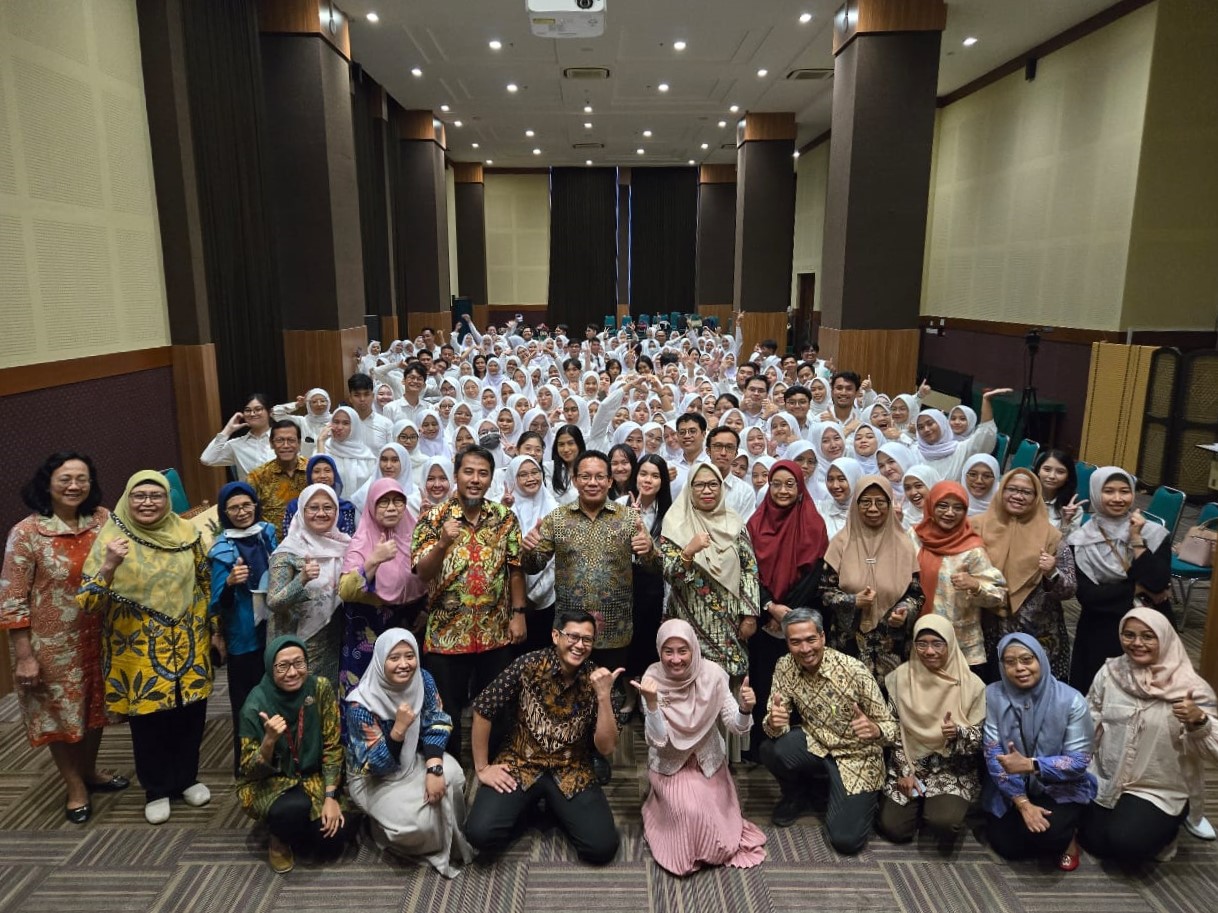
Mahasiswa Profesi Apoteker Periode 118 Berhasil Lulus 100%
Kabar gembira menyelimuti para mahasiswa Program Studi Profesi Apoteker periode 118 FF UNAIR. Bagaimana tidak, mereka semua berhasil lulus menjadi apoteker. Pada yudisium yang telah diselenggarakan...
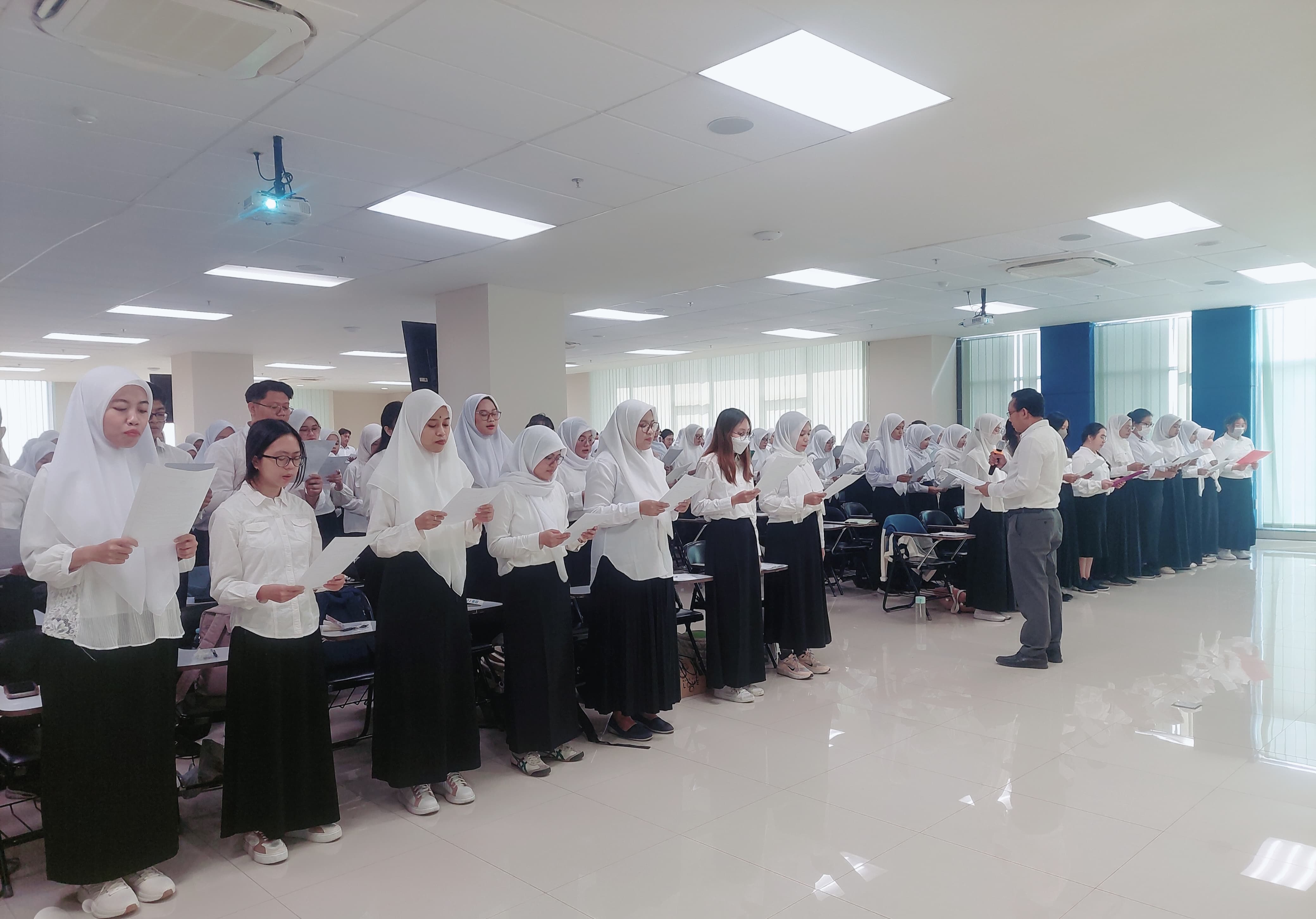
Maba Profesi Apoteker Periode 120 Ucapkan Janji Calon Apoteker pada Agenda Penerimaan Maba
Mahasiswa baru (maba) Program Studi Profesi Apoteker Periode 120 mengikuti serangkaian agenda penerimaan maba selama dua hari pada tanggal 7-8 Agustus 2024. Bertempat di...

Dr. Qonita Anjani from Queens Belfast University, flew from Northern Ireland to FF UNAIR to give a lecture
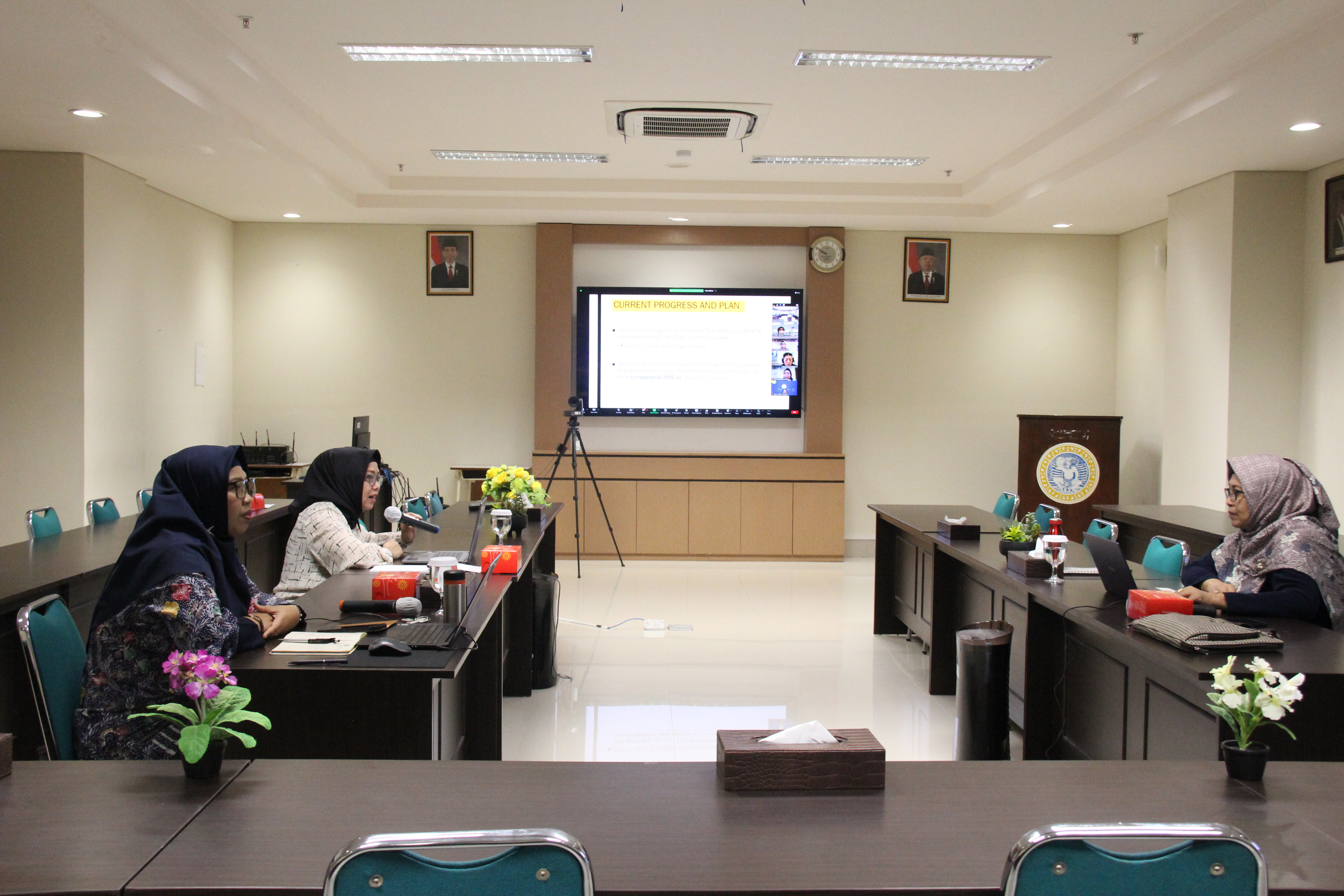
Collaborating in the field of research, FF UNAIR and Osaka University held a meeting
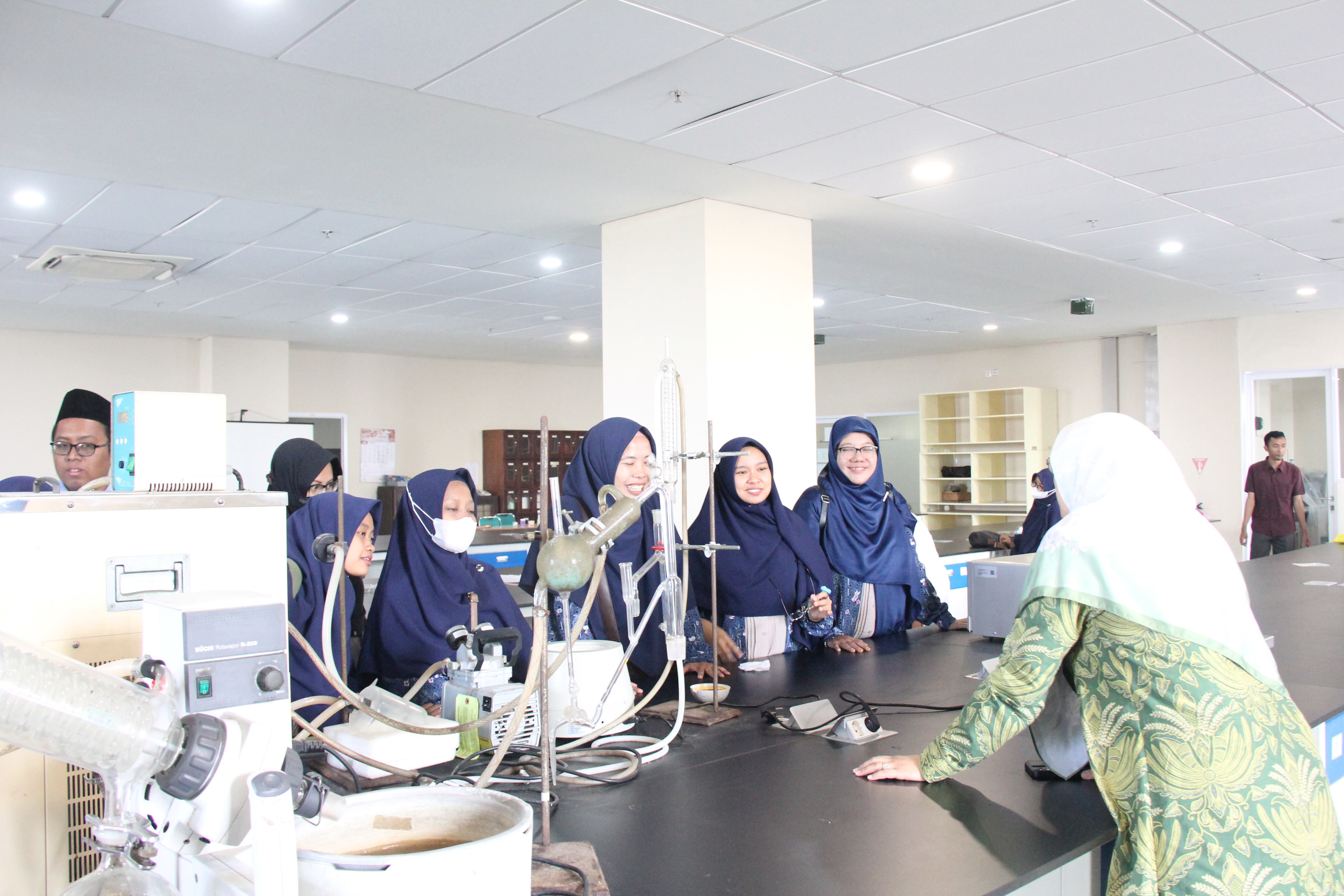
MTs Alif Laam Miim Boarding School Surabaya Teacher is Enthusiastic about Visiting the FF UNAIR Laboratory
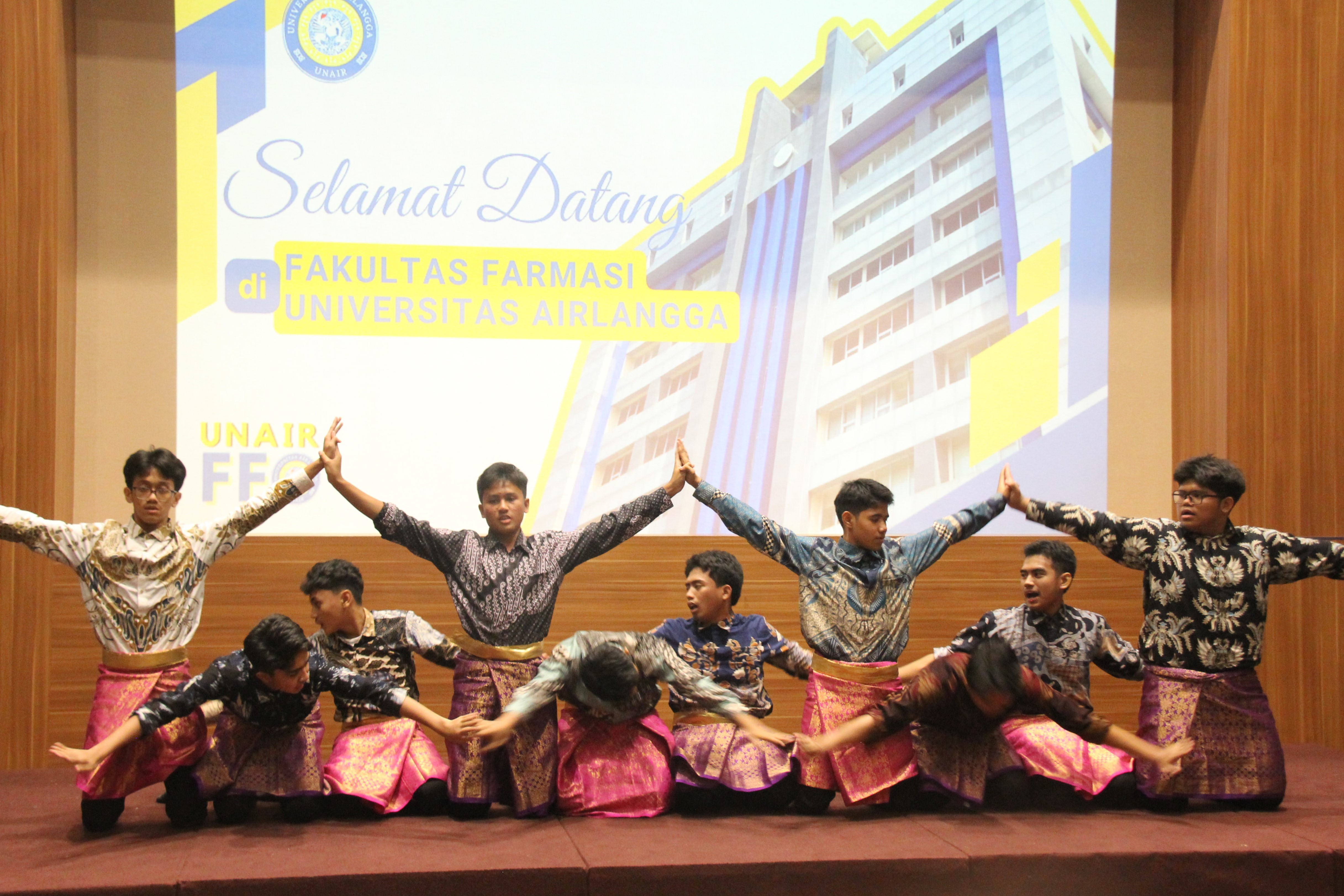
Different from usual, take a peek at the excitement of visiting Insantama Bogor Islamic Integrated High School


